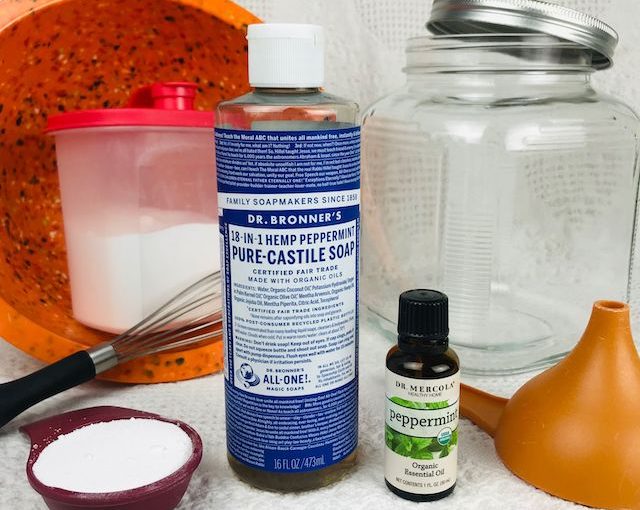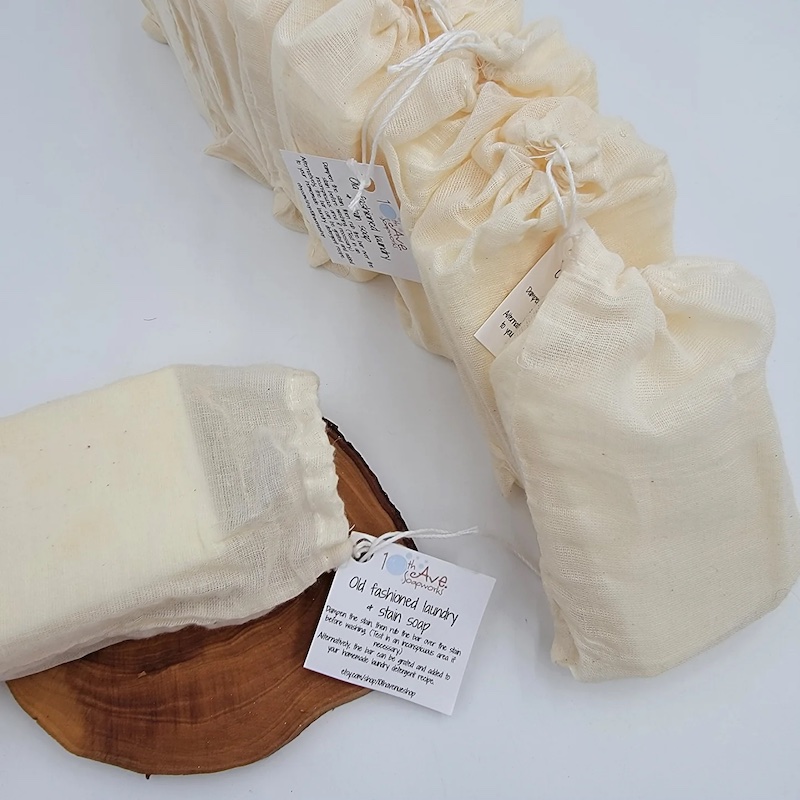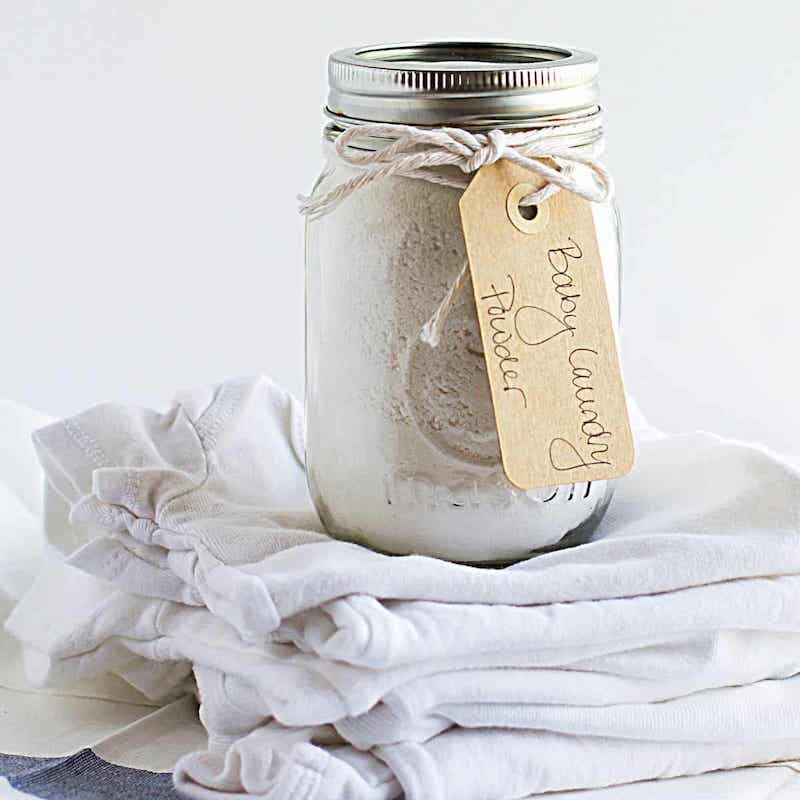Why Make Your Own Laundry Soap
Choosing to create your own laundry soap at home comes with several benefits. Saving money stands as a primary reason why many people turn to homemade solutions for laundry care. By crafting your own laundry soap, you can significantly cut costs compared to buying commercial detergents. This is particularly true when considering the price per load, which, in homemade versions, tends to be much lower.
Health benefits also play a crucial role. Many laundry products, even those labeled as ‘natural’, can conceal hazardous chemicals that may cause health problems, like skin irritations or respiratory issues. Crafting your own soap puts you in control, letting you avoid harmful ingredients completely.
Another compelling reason is environmental protection. Store-bought detergents often contain phosphates and other elements that can be ecologically damaging. Homemade soap recipes typically use eco-friendly ingredients that lessen your environmental footprint.
Moreover, creating your own soap encourages a less waste lifestyle. You can reuse containers and avoid the excess packaging that comes with commercial products. This approach aligns with the growing zero-waste movement, which seeks to reduce the trash output from households.
Lastly, personal preference cannot be overlooked. You may simply enjoy the process of making soap. It provides a sense of accomplishment and allows for customization in terms of scent and ingredients that suit your family’s specific needs and sensitivities.
Ingredients to Avoid in Conventional Laundry Detergents
When choosing laundry detergents, it’s important to know which ingredients may harm your health and the environment. Here are some components commonly found in conventional detergents that you might want to avoid:
- Fragrances: Often, these contain phthalates and parabens, which can cause allergies and other health issues.
- Bleach (chlorine): A harsh irritant that can affect the skin and respiratory system.
- Dyes: These can have heavy metals like cadmium, arsenic, and lead. They add no cleaning value, only color.
- Phosphates: These can irritate the skin and they contribute to water pollution.
These are just a few of the many harmful chemicals found in some store-bought laundry detergents. They can contribute to short-term health problems such as headaches, as well as long-term issues including asthma.
By making your own laundry soap, you avoid these risky substances. Instead, you use safe, natural ingredients that won’t harm your loved ones or the planet. This not only safeguards your family’s health but also supports a healthier environment.
Safe and Effective Ingredients for Homemade Laundry Soap
Choosing the right ingredients is crucial for making a safe and effective laundry soap. Good recipes typically include only a few simple, all-natural components. Here are ingredients to consider for your DIY laundry soap that are non-toxic, safe for your family, and have proven cleaning power:
- Sodium Bicarbonate (Baking Soda): It cleans, deodorizes, and brightens laundry. Always select an aluminum-free version.
- Sodium Carbonate (Washing Soda): A powerful cleaner that helps to remove stubborn stains and soften water.
- Epsom Salt: Helps prevent fading and maintains fabric integrity. It can also soften water.
- Sea Salt: Boosts the cleaning power and can help to keep colors bright.
You can customize your laundry soap by adding essential oils for their scent and additional cleaning properties. Lemon essential oil is known for its stain-removing qualities, while lavender oil can give a calming fragrance to your laundry. However, essential oils are optional, and you can leave them out if you prefer a scent-free detergent.
Avoid using bleaches or synthetic fragrances, which can be harsh on fabrics and skin. Instead, focus on these natural ingredients that provide a thorough clean without the harmful effects associated with conventional detergents.
Step-by-Step Guide to Making Your DIY Laundry Soap
Creating your own laundry soap at home is simple and affordable. Follow this easy step-by-step guide to make a natural laundry detergent that is gentle on clothes and tough on stains.
- Gather Ingredients: Start by collecting all necessary ingredients, which include baking soda, washing soda, Epsom salt, and sea salt. If desired, choose essential oils for fragrance.
- Measure Quantities: Accurately measure the ingredients. Use the same measuring tools to ensure consistency.
- Mix Dry Ingredients: In a large bowl, combine the baking soda, washing soda, Epsom salt, and sea salt. Stir them together until well blended.
- Add Essential Oils: If you’re using essential oils, now is the time to add them. Mix thoroughly to ensure the oils are evenly distributed through the powder.
- Store Properly: Transfer your finished laundry soap to an airtight container. This keeps it dry and prevents clumping.
- Label Your Soap: Clearly label the container with the ingredients and the date made. This helps you keep track of when it’s time to make a new batch.
- Use in Laundry: For a regular load, use about one tablespoon of your homemade laundry soap. Adjust the amount based on the size and soil level of the load.
By following these steps, you can create a laundry soap that’s safe for your family and the environment. Not only is it non-toxic and effective, but it also helps you save money in the long run. Keep in mind, the key to a successful laundry soap recipe is to use quality, all-natural ingredients and precise measurements.
Tips for Using Your Homemade Laundry Soap
Using your own laundry soap is simple with these helpful tips. Proper use ensures cleanliness and efficiency.
Quantity Per Load
- Use about one tablespoon for a regular load of laundry.
- For larger or dirtier loads, increase to two tablespoons.
- Do not overuse as it can leave residue on clothes.
Water Temperature
- Works in both hot and cold water.
- Hot water can improve cleaning for heavily soiled items.
Pre-Treating Stains
- Apply a small amount directly to stains before washing.
- Allow it to sit for a few minutes for better results.
Dissolution Tips
- For top-loaders, dissolve the soap in water before adding clothes.
- For front-loaders, place it in the dispenser or toss directly with laundry.
Soft Water versus Hard Water
- If you have soft water, stick to smaller quantities.
- In hard water, you might need to use a bit more soap.
Fabric Softeners
- Skip commercial softeners; they can reduce soap effectiveness.
- Use white vinegar as a natural fabric softener instead.
Dryer Tips
- Natural alternatives like wool dryer balls can be used instead of dryer sheets.
- They reduce static and can be scented with essential oils if desired.
Remember, finding the right balance for your laundry might require a bit of experimentation. Adjust amounts and techniques to suit your specific laundry needs and equipment.
Natural Additions: Enhancing Your Laundry Soap with Essential Oils
Essential oils can add a pleasant aroma and extra cleaning power to your homemade laundry soap. Here are some natural essential oil options you may want to consider:
- Lemon Essential Oil: Known for its fresh scent, lemon oil can help lift stains and brighten whites.
- Lavender Essential Oil: Adds a soothing fragrance to your laundry and can have calming effects when you sleep on laundered sheets.
- Tea Tree Essential Oil: Has antibacterial properties that can be beneficial for cleaning clothes.
- Eucalyptus Essential Oil: Its strong scent refreshes laundry and can aid in removing tough grease stains.
To use essential oils in your laundry soap, here are simple steps:
- Choose your favorite essential oils.
- Measure out 20-30 drops for a large batch of laundry powder. Adjust based on preference.
- Mix the essential oils with the dry soap ingredients thoroughly to distribute evenly.
- Store your scented laundry soap in an airtight container.
Remember, essential oils are potent. A small amount goes a long way, and overuse could overwhelm. Start with a few drops and adjust as needed for the level of scent you enjoy.
Using essential oils is optional. If you choose to avoid them, your laundry soap will still be effective without added fragrance.
Common Questions and Troubleshooting for Homemade Laundry Soap
When making and using your DIY laundry soap, you may encounter some questions or issues. Here’s a guide to troubleshooting common concerns:
Will this soap form suds like store-bought detergent?
Your homemade laundry soap might not produce as many suds. Suds don’t impact cleaning power. Less foam means it’s safe for HE machines.
Is my homemade laundry soap safe for all fabrics?
Yes, this laundry soap recipe is gentle on most fabrics. However, always test on a small area first.
Why is my laundry soap clumping?
Clumping can occur due to moisture. Make sure to store your soap in an airtight container. A dry environment helps too.
How can I make my whites whiter without bleach?
Add lemon essential oil for its natural brightening properties. A pre-soak in baking soda might help too.
Can I use this soap in cold water washes?
Absolutely. This homemade soap works well in both cold and hot water. Cold water is more energy-efficient.
My laundry isn’t coming out as clean as I hoped. What can I do?
Increase the amount slightly for larger or dirtier loads. Also, pre-treat tough stains with a paste made from the soap.
Are there any ingredients I should never use in homemade laundry soap?
Avoid synthetics like bleach, fragrances, and dyes. They can harm your skin and the environment.
How do I use vinegar as a fabric softener with this soap?
Just add half a cup of vinegar to your rinse cycle. It acts as a natural softener and doesn’t leave any smell.
Can I add baking soda or vinegar to the wash for extra cleaning power?
Yes, you can. Baking soda boosts cleaning, while vinegar in the rinse cycle can soften fabrics.
What should I do if the laundry soap doesn’t dissolve well?
For top-loaders, dissolve in water before adding clothes. Front-loaders should use the dispenser.
By addressing these common questions and following simple troubleshooting tips, you can enjoy the full benefits of your budget-friendly, homemade laundry soap recipe.
Eco-friendly Practices: Safe Disposal and Recycling Tips
Adopting eco-friendly practices is vital when making your laundry soap. Proper disposal and recycling help sustain our environment. They minimize harmful effects and maximize resource efficiency. Here are tips to ensure eco-conscious disposal and recycling while using homemade laundry soap:
Choose Recyclable or Reusable Containers
- Use glass jars or containers for storage. They last long and can be recycled.
- Select plastic containers labeled with recycling symbols. They are easier to recycle.
- Reuse old laundry detergent bottles. Clean them well before refilling.
Safe Disposal of Ingredients and Packaging
- Buy ingredients in bulk to reduce packaging waste.
- Dispose of any unused ingredients at a hazardous waste facility.
- Recycle paper or cardboard packaging if possible.
Composting and Biodegradability
- Compost any paper or cardboard when you can. It returns nutrients to the soil.
- Check if your soap ingredients are biodegradable. They should break down naturally.
Water Usage and Disposal
- Don’t pour too much soap into washes. Excess can strain wastewater systems.
- Use cold water to save energy and reduce environmental impact.
Encourage Community Recycling Programs
- Participate in local recycling programs.
- Share your homemade laundry recipe with neighbors. It promotes eco-friendly habits.
By following these practices, you support a cleaner and healthier planet. Adopting eco-friendly methods with your household chores is a step towards sustainability. Make it a habit to choose and dispose of products responsibly.



